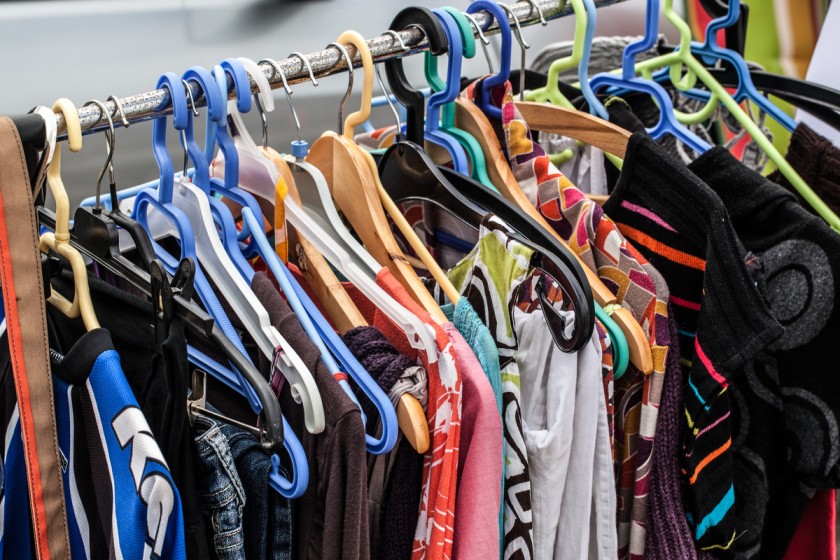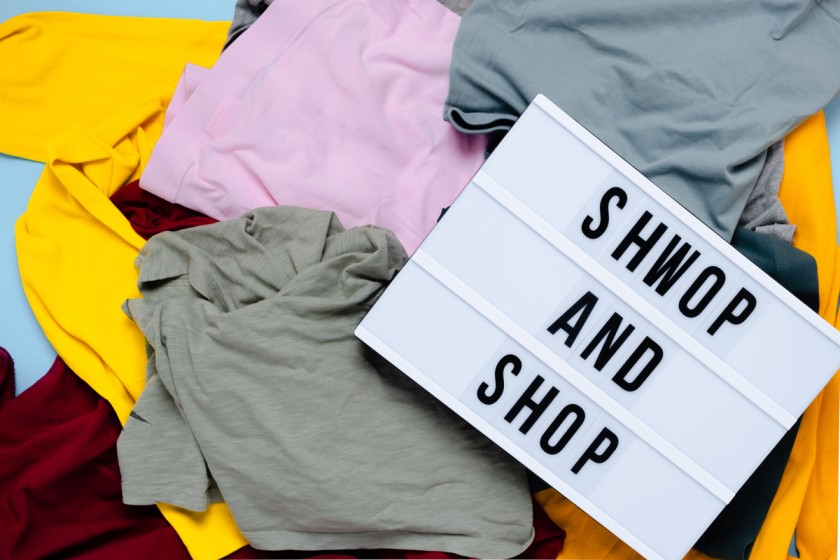Is It Legal To Resell Clothes Online?



You can't blame anybody these days for needing to discover methods to supplement their primary income – or, as the younger generation refers to it, a "side-hustle." People are split on whether or not it is permissible to acquire and resale clothes in this situation. We'll be talking about eCommerce resale, which differs from reselling in other businesses.
If you're a reseller, we'll tell you what it takes to be successful and whether or not doing so is even legal in your country. Is it lawful to collect and sell if it's legal to acquire and resell items? We want to go over this issue thoroughly and ensure that you grasp all there is to know about it. Online resale will be our primary emphasis. Let's start with resell clothes online is legal or not!
Is it Legal to Resell?

Technically speaking, it is not illegal as long as it was purchased legitimately. Once you have bought anything from a retail store, you have complete freedom to do with it as you like. Manufacturers often have little to no influence over a product after being sold to its initial consumer. In the case of starting a firm, though, there are a handful of considerations to consider.
Almost everything has a market value. What you are and are not permitted to do is determined by the marketplace you sell. Reselling merchandise is prohibited on Amazon, for example. Reselling on large markets is usually forbidden by companies with large legal teams. Amazon offers a whole area dedicated to brands not available in your country.
In most cases, reselling a product is lawful. It is more common for platform restrictions to emerge from the platform itself rather than from the firm that manufactures the platform. Fortunately, most brands are risk-free when it comes to reselling. For obvious reasons, it is not permissible to make claims like "brand new" or "direct from the manufacturer" since they are inaccurate.
When Reselling Clothes Becomes Illegal
Selling to a friend or family member for profit is not unlawful. However, when your resale company grows, it becomes simpler to contravene specific laws due to the act of reselling. The reasons are listed below:
- With Trademark
Product-approved resellers may be found in a variety of different companies. In some instances, the enterprises deal with the rightsholders to offer 'authentic' items. Resellers may use trademarks belonging to the rightsholder to promote their clothing products with a license agreement.
If you want to use manufacturers' logos for marketing the items you're reselling, you must first get their permission. Because of this, you face the danger of being sued for trademark infringement should your firm become successful and no longer remains hidden from prying eyes.
Incorporated into advertising graphics, the usage of these trademarks communicates a feeling of authority, and it's logical why a rightsholder would want the ability to restrict when and how a reseller might use these symbols.
- Providing a Warranty
Another advantage of being an authorized reseller is that when a product is moved from the manufacturer to the reseller, the manufacturer's full guarantee is maintained. Customer protections are identical to those available to those who purchase the goods directly from the manufacturer, whether via a third-party reseller.
On the other hand, unauthorized resellers do not fall into this category. When you resale a device without a manufacturer's license, you risk invalidating the manufacturer's original guarantee, which protects the first buyer but not future purchasers. Some warranties are changed, limited, or substituted in some way in other situations.
A reseller maximizes the value of their goods by selling them as if they were brand new and similar to the items offered by large merchants in the marketplace. If you sell a brand-new item with a guarantee that differs from the one that comes with an item bought straight from the manufacturer, you may be selling something that isn't the original.
- Sales Tax
If we're talking about a one-time transaction, such as selling worn clothing and then ending when you run out of stuff to sell, there's nothing criminal or tax mysterious about it at all.
However, if you want to start a large-scale reselling business, you'll need to apply for a reseller's permission from your state's tax authority, which will require you to register your company and get a sales tax ID number. It also entails paying income tax on your sales. You might face a fine if you're caught reselling in significant numbers without paying sales tax.
It is because your company model includes two situations in which sales tax is applicable: when you purchase your goods and when your client makes a purchase via you. However, if you're reselling without permission, your consumer isn't paying you a sales tax, which would otherwise go to the government - and that's against the law.
Small-Time Clothes Reselling

Registering your company is required to make reselling a regular side income source for yourself or your family. You may want authorization from the manufacturer to become an approved seller. The fact that certain types of resale are prohibited does not imply that all of them are.
Your closet needs a good cleaning, so you decide to sell your old clothes on the internet. It is not unlawful to sell worn garments as long as you mention that they are secondhand and do not represent yourself as an authorized vendor of your company's branded goods.
The process may seem to be lengthy, but it is only the price of entry before you can begin reselling your items. Most difficulties may be avoided if things are done the first time correctly. Once you've identified a few things, registered with a few sites, and begun selling, you'll realize that it's a gradual learning process.
How Do You Earn Money as a Reseller?
Retail Arbitrage: While concentrating on retail outlets such as Walmart, Target, and Home Depot, purchase clearance products. Shop around for the best deals, whether they're on the clearance rack or sites or even Facebook Marketplace. If you think you can earn a profit on such things, go ahead and purchase them.
Dropshipping: It is entirely possible to dropship through the internet. You purchase items directly from producers and sell them to clients online, eliminating the need to have inventory on hand. Middlemen or technological solutions are used to handle every aspect of the transaction.
Private Label: Here, the idea is to buy things directly from the manufacturer in smaller quantities, brand and package them with your logo, and then sell them under your brand name. For example, you may sell your things on eBay, Amazon, your website, or at flea fairs.
Wholesaling: To resell clothes online on sites such as Amazon or eBay, you must purchase large quantities of products straight from producers in bulk.
Another aspect of resale worth highlighting is garage sales and items that are no longer in use. Reselling items you don't use to make fast money isn't considered a business strategy, but it does fit under the term "retail arbitrage."
Advantages of a Resale Business
Because you are not designing and producing your items, there is a low barrier to entry for resale enterprises. There is already a need for the items, and it is your responsibility to market them to potential customers.
A high amount of dedication is required to create your items, including branding, packaging, and selling them. Not everyone has this level of devotion. If you appreciate the business concept and want to expand your online presence, it is logical to start designing your items over time.
Amazon and eBay are popular internet markets for resale businesses. To expand, it is necessary to create your website and invest money in advertising campaigns. Instead of handing over a more significant portion of your transaction to Amazon or eBay, you begin to own it.
Disadvantages of a Resale Business
The reselling industry, especially retail arbitrage, has one key disadvantage—lack of command. You do not influence what is offered for purchase in shops, and you have no control over product quality concerns. In some instances, if you locate an item that sells well, you may not get it for the same price in other places.
You also do not influence branding. Even if you're the vendor, the thing isn't yours, and claiming that it is is prohibited. The brand's popularity is what seals the deal. Because the product isn't unique, you may encounter others offering the same brand and product. That is to say, you do not influence the pricing of your goods.
Using retail arbitrage (reselling) to make fast money and launch an online business is becoming more and more popular. The business strategy has been an enormous success, but it's only a stepping stone to something more long-term.
Wrapping Up
In a nutshell, you're dealing with some tricky legal and financial difficulties. Do not proceed further without consulting a qualified specialist to ensure that you are adequately protected for those who are willing to observe their legal requirements on resale. If you buy in bulk from a manufacturer and then resell clothes online at a profit on the internet, you can make some additional money by doing nothing but this.
On a concluding note, we at Fashinza help fashion brands and independent designers connect with the most reliable apparel manufacturers. Whatever your requirements, we’ll help you find a manufacturer that fits in perfectly. Besides, our complete ownership of the process from design to delivery will allow you to rest assured and focus on the other areas of your business. Get in touch now!



















